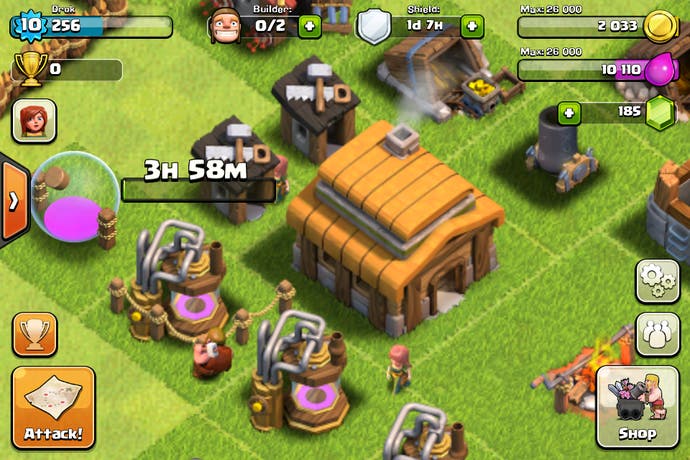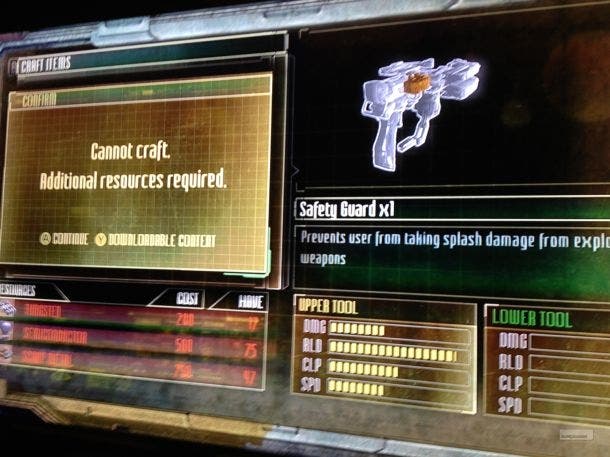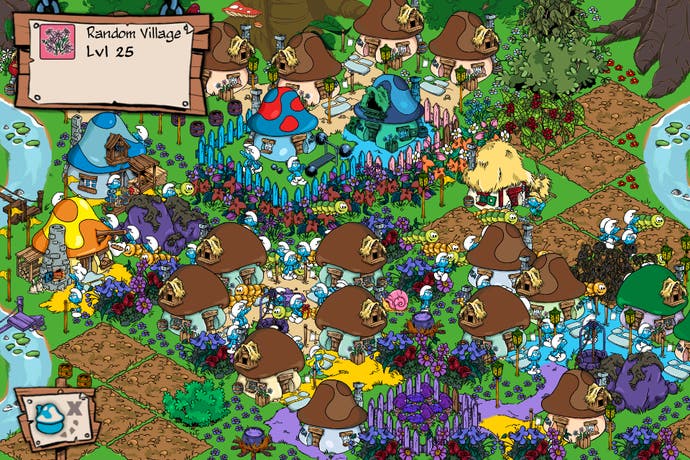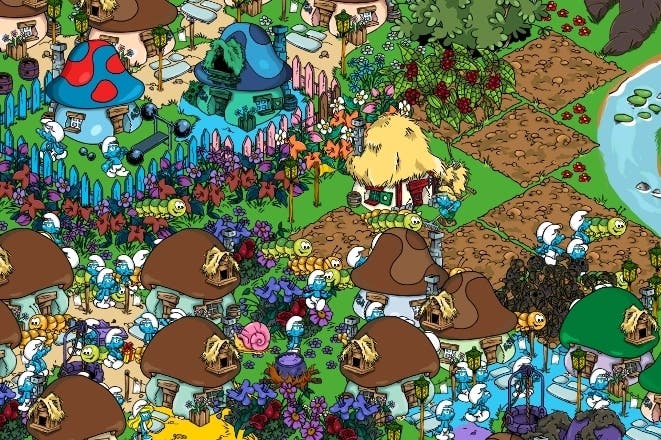Saturday Soapbox: The high cost of free-to-play
Or How I Tried To Love Freemium Gaming But Came Away Hating It Even More.
The Dutch called it tulpenwoede. In 1635, as Dutch society was enjoying its golden age, a craze for tulips swept the country. At the height of the fad, a single tulip bulb was reported as costing ten times the average annual wage. "Many individuals grew suddenly rich," wrote Scottish journalist Charle Mackay in his 1841 book, Extraordinary Popular Delusions and the Madness of Crowds. "A golden bait hung temptingly out before the people, and, one after the other, they rushed to the tulip marts, like flies around a honey-pot."
Many have found the flaws in Mackay's colourful reporting over the centuries, but he identified at least one persistent cultural truth: the more sudden and explosive the fad, the more devastating the aftermath for those who see it as a quick route to riches.
There's a tulip craze happening right now, and us gamers are in the thick of it. We call it free-to-play. It's the future, we're told. While the likes of Tomb Raider sell over three million copies and still disappoint accountants, games you've never heard of earn sums every month that dwarf the so-called blockbusters we obsess over. This isn't the semantic split between hardcore and casual, a simple tidal shift in favour of a different section of the market. This is a completely new market, a fundamental change not only in the way games are sold, but how they're designed.
And I don't understand it. That bothers me. As someone who writes about games for a living, and has done for over 20 years, I want to understand. I want to embrace change. I spoke up in favour of casual gaming and motion control, because I want there to be lots of directions in which games can develop. I don't want every game to be designed with us in mind. Most especially, I don't want to be the bitter old Luddite standing on the sidelines, waving a placard and shouting "Down with this sort of thing!" as the world marches onwards. I hate that guy. It's not me.

So I've been playing a lot of free-to-play games. In particular, I've been playing a lot of Clash of Clans, a multiplayer mash-up of light combat strategy and basic city building that is the latest shining star of the free-to-play scene. It's from Finnish developer Supercell, a small company that makes more money from just a handful of titles than EA does from almost a thousand apps. According to Venturebeat, Clash of Clans pulls in over a million dollars a day.
Are these games any good? Well, here's where my own confusion comes crashing in. I honestly have no idea. I've spent four weeks playing Clash of Clans, but over that time I've spent only a few hours at most actually playing the game. If this is the future, we need a new vocabulary.
It's important at this point to clarify that the notion of free-to-play is not, in itself, a bad thing. Clearly the traditional model of paying forty quid up front for a game in a box is struggling to survive in the current market. A return to the old PC shareware model - the game is free, but if you like it you can pay to unlock more of it - makes sense.
"Try before you buy" is reliable way to make a sale - nobody buys a car without a test drive - and it works because the onus is on the developer to make a product that hooks, tantalises and satisfies the customer. Such games did tend to be front loaded, with all their most exciting bits in the first sections, all the better to hook the player, but the transaction was a fundamentally honest one.
I don't see a lot of honesty in the kind of model that Clash of Clans and dozens of other build-a-village themed games use. I just can't see them as games, and this bothers me. A lot. I hate people who say "It's not a real game" because that's such a close-minded avenue of thought. Yet I look at these products and I don't see games. I see payment machines, made to look like entertainment.
The gameplay in Clash of Clans is tissue thin. You mine gold and elixir, and use these twin currencies to build and upgrade other structures. The kinds of things you can build, and the number, is determined by the level of your Town Hall. Upgrade this, at enormous cost, and more options become available. It's a multiplayer game, so you're also building defences and raising armies to go and attack others.

Except there's no point to any of it. You can build walls around your buildings and carefully place the handful of cannons and mortars you're allowed, but a player with a large enough army will overwhelm you through sheer force of numbers. You, of course, win your bouts in the same way. Just train as many troops as you're allowed, fling them at your randomly assigned foe and victory comes through volume rather than skill.
The surface mechanics might be similar to strategy games we recognise, or even identical in some cases, but the systems underneath are created from the ground up for diametrically opposed functions. You don't have to get better at a free-to-play game in order to do well. You just need an insane amount patience or very deep pockets. At best it's a mindless distraction, something to absentmindedly click on a few times a day, the illusion of purpose sold through numbers getting bigger and a screen that slowly fills with colourful images.
Victory or defeat matters little in the long run. Destroyed buildings automatically get repaired in a matter of seconds, and it's notable that this is the one time Clash of Clans gives you something quickly and for free. This, after all, is the point where players might get discouraged and not come back. And if they don't come back, their wallets remain out of reach forever.
Clash of Clans is not unique. It's just the latest example of an unpleasant trend. A traditional game is designed to entertain the player, to make them feel their money has been well spent. The free-to-play game is designed to keep people busy while gently teasing payment out of them, just as the farmer distracts the cow with a feeding trough as he hooks up the machine that will suck its udder dry.
I don't like being milked, and call me a curmudgeon but the most fun I've had with free-to-play games is seeing how long I can go before I absolutely have to spend money. That abstract battle of wills is almost always more engaging than whatever passes for actual gameplay, and it reveals much about the broken centre of such titles.
I've come to realise that it's not so much the need to pay-as-you-go that offends my sensibilities. That, in itself, is fine so long as we know what's being paid for. It's that these games escalate in a deeply cynical way. The first time you build something, it takes a few minutes. A couple of upgrades later, it'll take hours. Soon enough, you're being asked to wait for days. And as the delay increases, so too does the real money cost of skipping it. What once demanded ten gems now requires 200. The £2.99 bag of virtual gems you bought on your first day of play will buy far more than an identical bag of gems purchased a week later. That's a crooked economy, blatantly stacked against the player.
There's actually a cold genius to the construction of these things. You need to build X, but to do that you need Amount Y of Resource Z, and to get that much you need to upgrade buildings A and B, and so on. It's intricate and deep, a web of need that never stops growing, and it's dedicated solely to obstructing the player, holding them back so much that they'll pay to progress at normal speed, if only for a short time. If these developers could put the same attention to detail into the gameplay mechanics as they do into their payment structure, the result would be amazing.

It's this steady ratcheting, the reeling in of the fish, that sours the free-to-play model, relying on a psychology that has its roots not in entertainment media but in casinos, bookmakers and payday loans. The gameplay, such as it is, does not change or escalate but the cost does, constantly and inevitably. That's wrong, pure and simple. Technically, you can play these games without ever spending money, just as you can technically walk a marathon with a washing machine chained to your ankle, but every 100 metres they add another washing machine and move the finish line back a few miles. Sooner or later the effort required for each step outweighs the reason for taking part, and you either feel obliged to pay for some boltcutters or simply give up and accept that you've wasted your time.
Are such games fun? Millions of people play them, goes the argument from people whose job is to tell us such things, so the games must be fine. It's a classic case of argumentum ad populum, the notion that popularity is another word for truth, yet it only holds true for as long as we consider gaming to be a financial transaction, and nothing more. People spend thousands on lottery tickets and scratchcards and get nothing back. People spend hours at fairground cabinets trying to grab cheap trinkets worth only a fraction of the money required to win them. We're a silly, irrational species and we're easily bamboozled or distracted into throwing our money away, especially if we're told we're enjoying it.
I don't really begrudge people whatever enjoyment they claim to get from these cynical free-to-play games, and I don't even blame the companies making them for seizing the opportunity. What I do worry about is what this means for games as a medium. With traditional business models in crisis, and absolutely crazy profits being made in F2P, the pressure is as obvious as it is sinister. There are ways to implement the freemium idea without compromising the integrity of the game, but when the titles making the most money are the ones that are most ruthless in their monetisation, what message does that send to the board rooms of beleaguered publishers?
Nobody comes away from the fairground grabber machine feeling enriched or inspired, children don't grow up wanting to become scratchcard designers and lottery tickets make for poor storytellers. Is gaming a vibrant creative artform capable of great things, or just a way of separating rubes from their money? As more and more publishers drool over the staggering sums being generated by titles like Clash of Clans, the answer only becomes more important. Get it wrong, and we'll be left with nothing but wilted tulips and regret.

